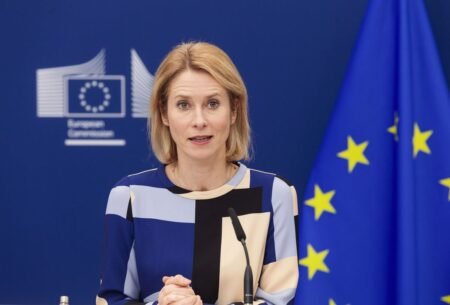(BRUSSELS) – The EU is moving towards guaranteeing a high level protection to whistleblowers across a wide range of sectors, following agreement Friday by EU states’ ambassadors.
Having adopted its position (at ambassadors level) on the directive on the protection of whistleblowers, the Council is now ready to start negotiations with the European Parliament with the aim of reaching an agreement before the end of the parliamentary term.
The rules impose the creation of safe channels for reporting both within an organisation -private or public if above 50 employees – and to public authorities. They also give a high level of protection to whistleblowers against retaliation, and require national authorities to adequately inform citizens and train public officials on how to deal with whistleblowing.
“Recent scandals such Cambridge analytica or Lux Leaks have demonstrated the importance of whistleblowers,” said Ambassador Luminiita Odobescu, Romania’s permanent representative to the EU, for the EU presidency:” That is why we need to provide them with a high level of protection across the Union. We should not expect anyone to risk their reputation or job for exposing illegal behaviour.”
Main elements of the Council’s position
Overall, the Council provided more clarity on some provisions of the text so as to increase legal certainty and better address the links between the new rules and existing legislation in some sectors.
Some of the elements of the position adopted by the Council compared to the initial proposal include:
- Reporting system: whistleblowers will first have to use internal channels within their organisation before calling on external ones (set up by public authorities) and, eventually, going for public disclosure. However, the principle of a three step system includes exceptions allowing a person to go directly for external or even public disclosures in some specific cases (e.g. in case of manifest or imminent danger for the public interest) ;
- Persons protected by the new rules: these elements of the Commission’s proposal were kept, and include a large number of profiles who could acquire information on breaches in a work-related context. e.g. workers, including civil servants at national/local level, volunteers and trainees, non executive members, shareholders, etc.
- Feedback obligations for authorities and companies: they will have to respond and follow-up to the whistleblowers’ reports within 3 months (with the possibility of extending to 6 months for external channels in duly justified cases);
- Public disclosures: the Council introduced an article setting out the conditions to be fulfilled for a person to be protected by the new rules in case he/she publicly discloses information;
- Scope of application: the Council’s position retains the wide scope as proposed by the Commission and covers areas such as public procurement, financial services, prevention of money laundering, public health, etc.
Currently, only 10 EU countries have a comprehensive law protecting whistleblowers. At EU level, there is only very sectoral legislation (mostly in the areas of financial services) which include measures to protect whistleblowers.
A 2017 study carried out for the Commission estimated the loss of potential benefits due to a lack of whistle-blower protection, in public procurement alone, to be in the range of 5.8 to 9.6 billion each year for the EU as a whole.
Position of the European Parliament on the whistleblowers directive
Commission website – factsheet on the whistleblowers directive








